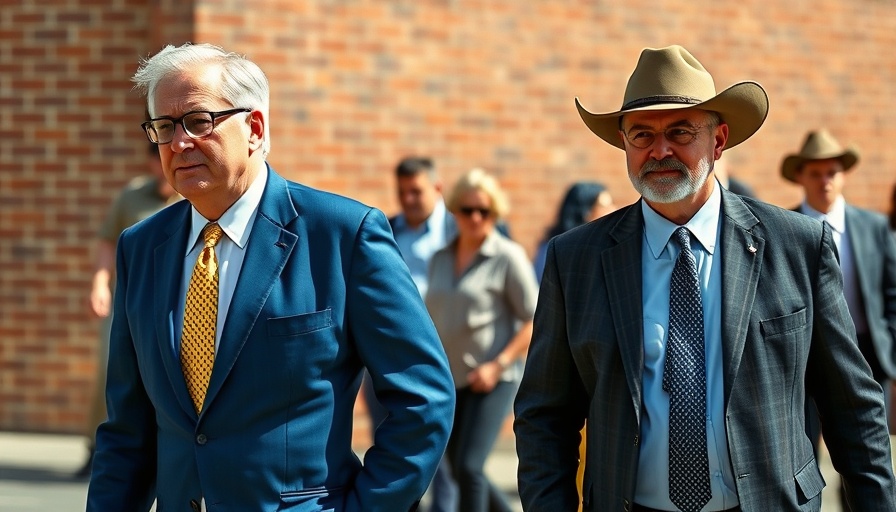
RFK Jr. Visits Texas Amid Growing Measles Crisis
U.S. Health and Human Services Secretary Robert F. Kennedy Jr. found himself at the center of a tragic scene in Texas this past Sunday as he visited the site of a massive measles outbreak. This visit coincided with the funeral of the second school-aged child who died from a measles-related illness in a region now facing nearly 500 confirmed cases. The grief-stricken community gathered to mourn while Kennedy offered condolences and support to families, recognizing the profound loss that has struck this tight-knit community.
The Impact of Vaccine Hesitancy
The current outbreak has been heavily linked to vaccine hesitancy, a significant concern that has emerged in various communities across the U.S. The two children who recently passed away were unvaccinated—a choice that has sparked intense discussions among public health officials. While Kennedy, known for his previous anti-vaccine stance, stated that vaccinations are the most effective shield against measles, critics have raised concerns about the delayed response and lax advocacy for vaccination before the outbreak escalated.
Measles: A Resurgent Threat
Measles, once thought to be a conquered disease, has resurfaced dangerously in the U.S. CDC representatives have emphasized the importance of the measles, mumps, and rubella (MMR) vaccine, which has proven effective for over six decades—achieving a 97% effectiveness rate after just two doses. Despite these statistics, certain communities, particularly among the Mennonite population in Texas, continue to struggle with vaccination uptake. Public health experts are now encouraged to engage more deeply with these communities to address fears and misinformation around vaccines.
A Closer Look at the Numbers: Measles Outbreak Statistics
As of now, the measles outbreak in Texas has tallied approximately 500 cases, with infectious individuals potentially spreading the virus to neighboring states such as New Mexico, Oklahoma, Kansas, and beyond. Alarmingly, the fatalities among young, unvaccinated children shed light on how quickly measles can become deadly, particularly in areas with insufficient immunization rates. With every report of a new case, the urgency for accurate information and community engagement grows stronger.
Emotional Human Interest: Stories from the Ground
The families of the deceased children face unimaginable heartbreak. Kennedy's visit was not just a political statement; it was also about connecting with the human side of this public health crisis. Meeting with families who have lost loved ones to what is largely viewed as a preventable illness echoes the need for increased compassion and better public health communication. Leaders in health need to acknowledge the emotional weight of this situation as they strategize on moving forward.
Potential Strategies for Future Prevention
Moving forward, the CDC has important recommendations for preventing further outbreaks. Health professionals are urged to actively reach out to unvaccinated groups, invest in educational outreach programs, and create strategies that resonate with community values—especially in populations hesitant about vaccines. Detailed, culturally sensitive communication is necessary to rebuild trust in vaccinations and counteract misinformation that has had devastating real-world effects.
Engaging Communities: The Role of Health Leaders
Health leaders like Kennedy play a pivotal role in combatting the resurgence of preventable illnesses. Their public stances and actions significantly influence community attitudes towards vaccinations. For Kennedy and officials in similar positions, demonstrating consistent support for vaccination policies could help reverse vaccine hesitancy trends. It also requires aligning community-wide efforts to foster discussions that advocate for health awareness.
Call to Action: Get Involved in Community Health
As we navigate this crisis, community members and leaders must unite to prevent the spread of misinformation and prioritize childhood vaccinations. If you’re a business leader or health professional, consider initiating conversations about health vaccinations at your workplace or community centers. Make a difference by promoting reliable health resources and encouraging open dialogue about vaccination benefits.
 Add Row
Add Row  Add
Add 




 Add Row
Add Row  Add
Add 

Write A Comment